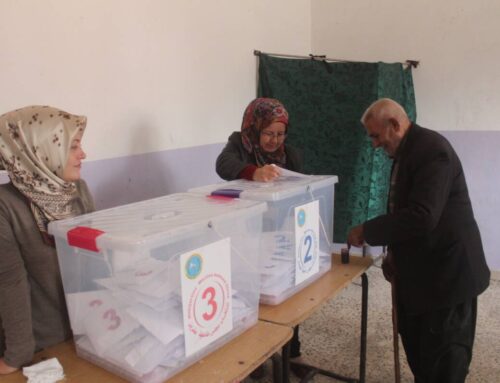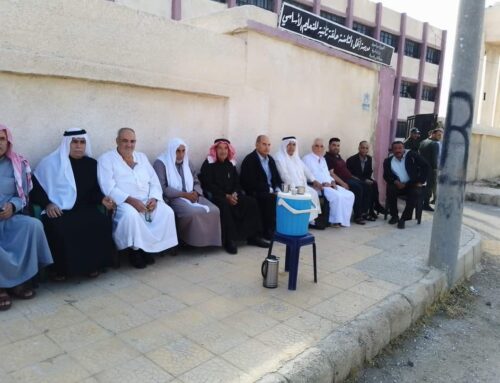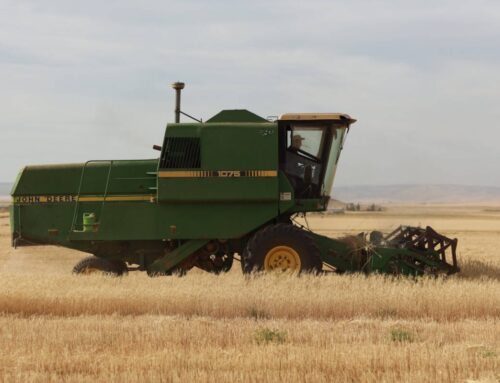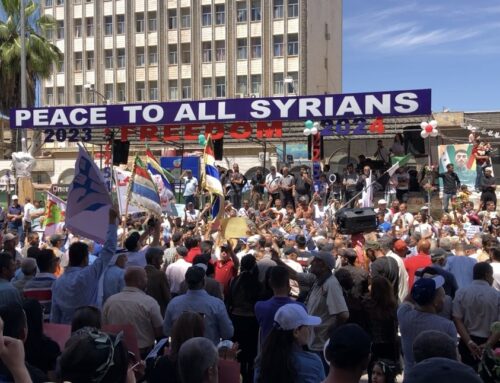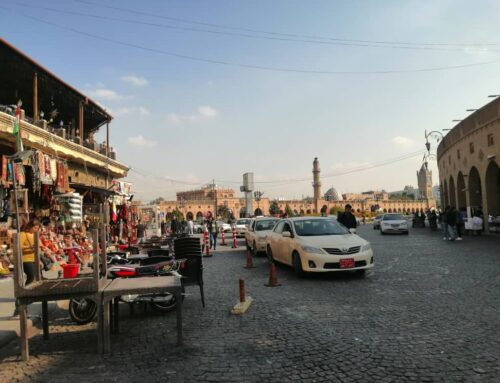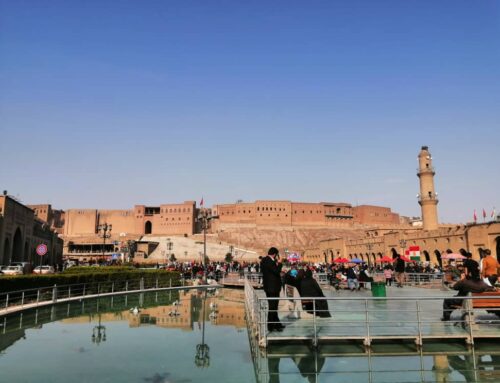Hostages and siege: Daraa frees detainees by any means necessary
For several months, local armed groups in Daraa have resorted to a strategy often used in neighboring Suwayda province: taking hostages and besieging regime security headquarters to force the release of detainees when attempts at civil mediation fail.
13 June 2024
PARIS — On June 4, a man from Nawa, a city in the western countryside of Daraa, was arrested by Syrian military security at the Mankat al-Hatab checkpoint on the Damascus-Daraa highway. In response, local armed groups in his hometown blocked roads and besieged the local Military Intelligence and Air Force Intelligence headquarters, demanding his release. Hours later, he was free.
“We won’t wait for more of our sons to die in Assad’s prisons,” one former opposition commander in Daraa told Syria Direct.
A similar scenario unfolded on May 26, when four men from Inkhil, a city in the north of the southern province, were arrested at the same checkpoint while returning from the Syrian capital, Damascus. The detainees, who included the leader of a local armed group, were taken to the military security branch in al-Masmiya, a town in eastern Daraa.
In response, armed forces from Inkhil—including the group led by one of the detainees—besieged the local General Intelligence (state security) branch. Three detainees were released within hours, while the commander was released two days later. Only then did the siege end.
For several months, residents and local armed groups in Daraa have resorted to a strategy of encircling military checkpoints and security headquarters in the province, or kidnapping regime personnel, to force the release of detainees. It is a strategy neighboring Suwayda province has been using for years.
At the same time, local clan and social leaders, as well as the central committees—bodies formed after the summer 2018 settlement to administer former opposition areas and negotiate with the regime, and which include armed forces made up of former opposition factions—also exert pressure to secure the release of detainees.
Military pressure
The arrest of the four men from Inkhil in late May came “under the pretext that one of them defected from the regime many years ago, even though he completed a settlement process,” the brother of one of the detainees told Syria Direct on condition of anonymity for security reasons.
The military security branch treated the detainees “cautiously, and did not harm them during their detention,” the source said. “The regime did not want to escalate, especially since the state security headquarters was besieged immediately after their arrest,” he added.
Just a day before the four men from Inkhil were arrested, local armed groups from the al-Lajat area of eastern Daraa released an officer and a soldier from the Syrian army’s 9th Armored Division on May 25 after holding them hostage for hours in response to the arrest of a young man from the area, also at the Mankat al-Hatab checkpoint.
The pair were released through mediation by the 8th Brigade, a local military group led by former opposition commander Ahmad al-Awda and affiliated with Syrian military security. In exchange, regime forces deployed in the area withdrew and pledged to release the young man, which took place the following day.
“Resorting to detaining regime forces, or besieging its headquarters, is the last way to release the detainees,” Abu Hussam, a former opposition commander in Jassim, said. In his city, this option has been used 11 times over the past year and a half.
In one operation last year, “we detained 60 officers from the military security center in Jassim, and 20 policemen from the station, in response to the regime arresting one of our people,” the commander said. Exerting pressure in this way “succeeded every time—the regime capitulated to our demands.”
Ultimately, Damascus withdrew military security from Jassim altogether in December 2023, following a meeting between regime officers and the leaders of local groups.
At that meeting, Abu Hussam and two other commanders from the city sat with Major General Louay al-Ali—the head of the military security branch in southern Syria—to reach an agreement to end a regime siege of Jassim imposed the same month. “What will you do now? There is no military security headquarters left for you to threaten us with,” Abu Hussam recalled al-Ali as saying. “We responded: If you detain anyone, we will liberate the village of Nimr,” north of Jassim.
In the months since military security withdrew from Jassim, young men from the city have been arrested several times at regime checkpoints while returning from Damascus. Each time, “we immediately intervene and demand their release by pressuring the regime,” Abu Hussam said. Local groups threaten to “storm the state security checkpoint between Nimr and Jassim, or checkpoints in other cities, if it does not respond to our demands.” This option has proved useful, because “it is the only way the regime understands,” he said.
Persistent insecurity in Daraa, alongside detentions by the regime “to continue its security control over the area” have led “the local community to lose hope of stability,” writer and researcher Ahmad Abazeid, who is from the province, said. This despair has led to “relying more on local opposition groups—which represent a continuation of the Free Syrian Army groups before the settlement—to protect the local community.”
“The alliance between the central committees and the 8th Brigade has been the most important development in the role of local groups as an actor in the province for the past year or so,” Abazeid added. “This alliance helped strengthen other local groups and encourage them to challenge the regime on the issue of detainees.”
Central committees intervene
On May 26, a mother and daughter from the northern Daraa village of Qita were freed 20 days after they were detained in Damascus. Their release came as the result of negotiations between one of the province’s central committees and the regime.
A week earlier, a man from the western Daraa town of Hayt was released after a week of detention due to intervention by the central committee and local clan leaders.
In May, regime forces detained 15 people from Daraa, 10 of whom were released the same month, according to the documentation office of the Horan Free League, a local media institution. In April, the office documented the detention of 12 people, 10 of whom were released. The office did not detail the circumstances of the releases in either month.
“Detaining regime officers to release our detainees is positive, and always works,” one member of the Central Committee in western Daraa said. “Suwayda province started it years ago.”
However, the committee “prefers to exert pressure through our direct channels with the regime. If that does not succeed, we use military force and the language of threats,” the member explained to Syria Direct, requesting anonymity. “The central committees in Daraa, the civil committees and councils of elders in each city play a major role in the release of people newly detained by the regime, while a few cases are solved through military pressure.”
“There are two currents in the Houran today,” Abu Hussam, the commander in northern Daraa, noted. “The first exerts civil pressure through communication channels with regime officers, and the other exerts military pressure. Both complement each other.”
“After an arrest, people contact the central committees, which mobilize immediately and try to get them out by any means,” he added.
The committee member also emphasized the importance of both forms of pressure—armed force and civil mediation. In “villages and towns the opposition did not previously control, [where] the central committee and local groups are virtually absent, it is difficult to pressure” the regime to release detainees, he said.
Released for a gun
Abu Hassan, a 28-year-old from Inkhil, was arrested at a regime checkpoint last October while on his way home from his job working on local farmland.
A number of notables from Abu Hassan’s family intervened and negotiated with the officer in charge of the checkpoint, who finally said they could hand over a rifle in exchange for his release, he told Syria Direct.
Abu Hassan’s family did not want one of the city’s armed groups to intervene and put pressure on the checkpoint. “The regime would think I’m an important person, and demand more than a rifle,” the young man said. “It could put a red mark on my name, and not forget.”
So his family did as the officer asked. He refused to take a payment equivalent to the price of a gun, insisting he would “only take a rifle, so we had to buy one from an arms dealer for $700,” Abu Hassan said.
For armed groups in Jassim, handing over a weapon in exchange for a detainee is out of the question, commander Abu Hussam explained. They and the civil committees in the city made a decision a year and a half ago to prevent any weapon from being delivered to the regime. Instead, “we detain someone in their place,” he said. “We won’t hand over our weapons.”
This report was originally published in Arabic and translated into English by Mateo Nelson.


